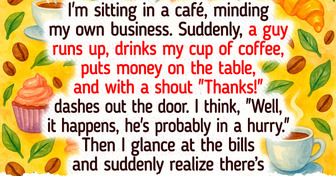There are a lot of people who can’t have kids. People forget sometimes it’s not a choice and being asked when are you going to have kids can be just as hurtful.
I Declared ‘No Kids’ at Work—And HR Made It a Whole Thing
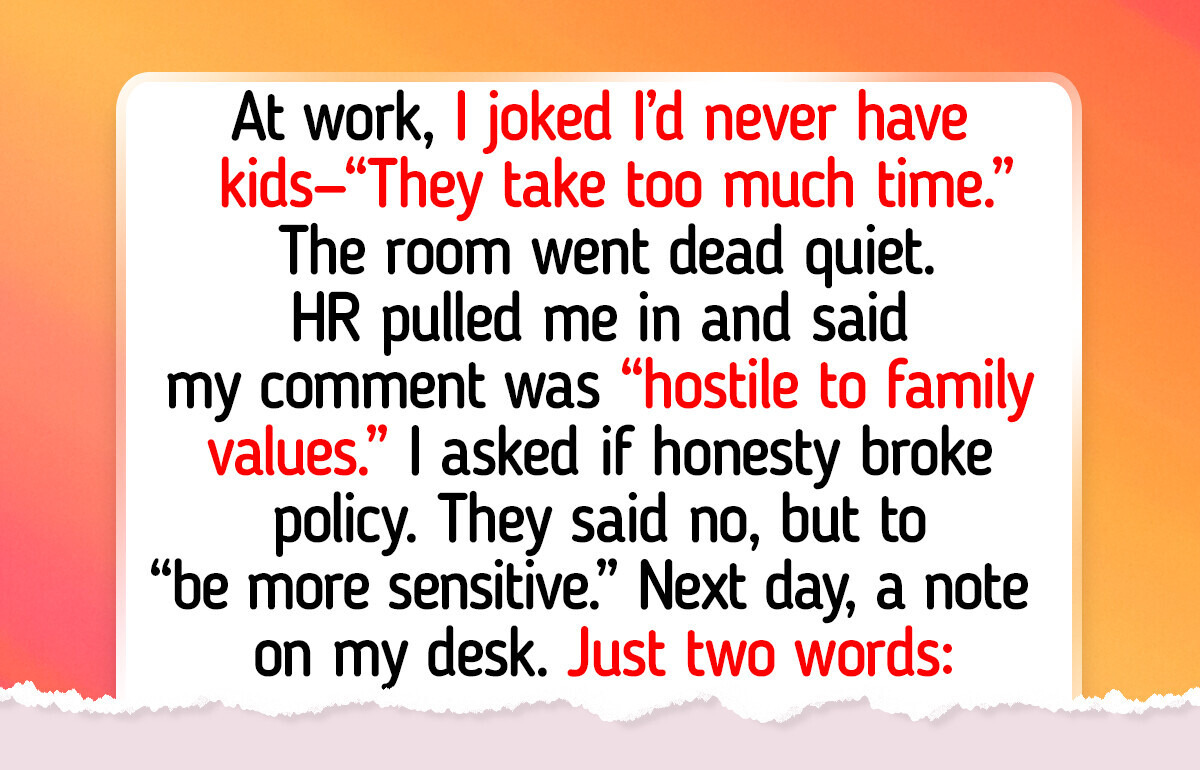
Every week, we receive letters that peel back the quiet rules people still live under — especially women who choose a life that doesn’t follow the script. This one came from Natalie, an office worker who found out just how loud silence can get after she said simple words: “I don’t want kids.”
The letter with her own words:
Hi Bright Side!
I work in a mid-sized office — not toxic, but the kind where everyone knows everyone’s business.
We’d just come back from the weekend when someone asked, “So, when are you having kids?”
It was the second time that month.
I laughed and said, “Never. I don’t want kids. They take too much time.”
The room went silent.
You’d think I’d confessed to a crime.
An hour later, a coworker told me my comment had made “some parents uncomfortable.”
By the next day, HR had scheduled a “conversation.”
In the meeting, they told me they’d received complaints that my statement was “hostile to family values.”
I asked if saying I don’t want kids violated company policy.
They said no, but that I should “be more sensitive to people who cherish parenthood.”
I asked, “So parents can talk about their kids all day, but I can’t talk about not wanting any?”
They didn’t answer.
The next morning, a sticky note waited on my desk. No name.
Just two words: “Office clown.”
That hit harder than the HR talk.
Not because it was cruel, but because it told me what people really thought — that choosing a different life made me a joke.
Why do they care so much about what I choose?
Natalie
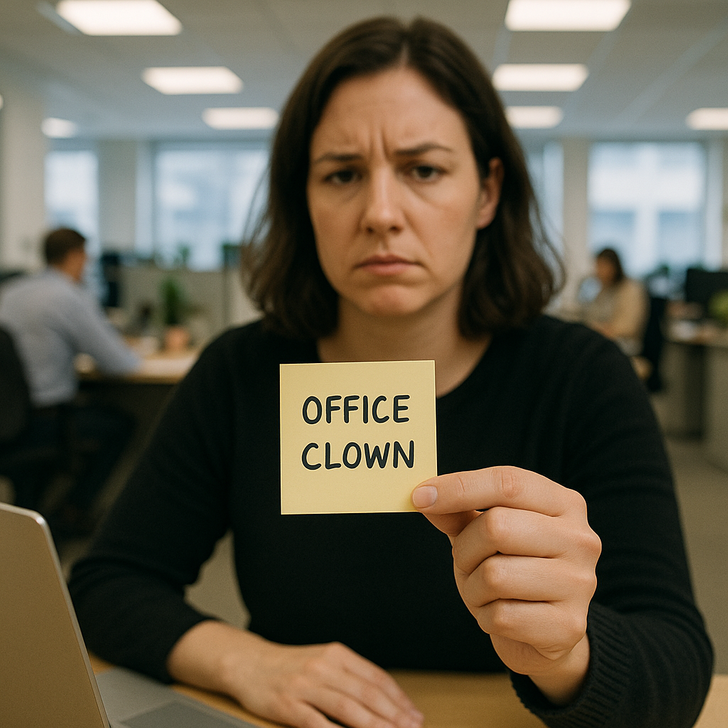
💫 Thank-You Note
We want to thank Natalie for sharing her story with such honesty. It’s not easy to put quiet judgment into words — or to stand by a choice when the world keeps asking for a different one. Stories like hers remind us that kindness isn’t agreement; it’s respect.
Why Do People Judge the Child-Free?
More and more people are deciding not to have children — and for a variety of thoughtful, personal reasons. Still, even as society becomes more open to different ways of living, those who choose to remain child-free often face an unexpected kind of backlash. Instead of curiosity or respect, they meet judgment, side-eye comments, or even outright hostility.
Why does this simple choice spark so much emotion in others?
Understanding where the criticism comes from reveals a lot about cultural expectations, family pressure, and the way we still measure “success” in life.
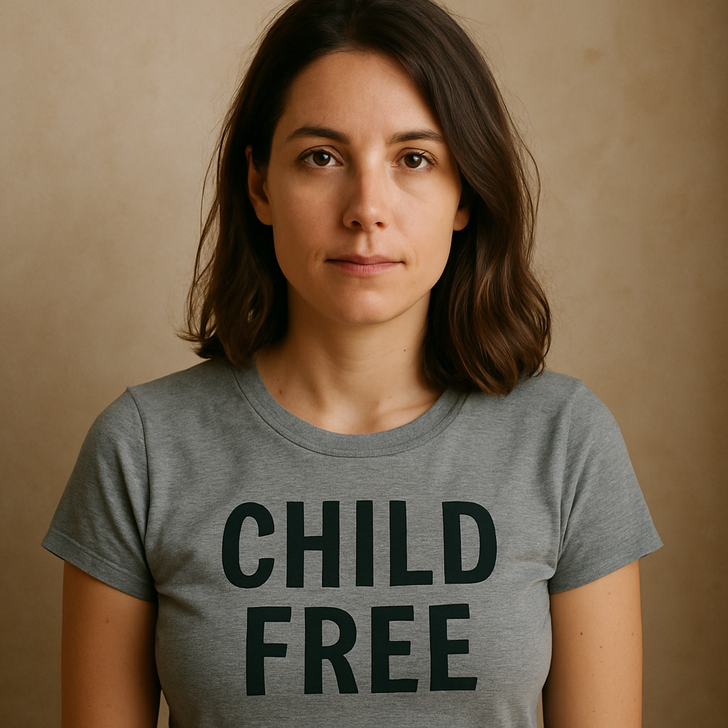
The person that wrote the post it note should be embarrassed for being such an immature spineless wussy! What are they back in the 7th grade?? Grow up. How does it affect them in any way because she doesn't want kids? How in anyway does it diminish them being parents? No wonder why this country is turning into a s**t hole. Too many idiots who's Fee Fees get hurt over the dumbest s**t!
Parenthood has long been treated as a universal milestone — something you do because that’s what people do.
So when someone steps off that path, it shakes the script a little. Choosing to stay child-free doesn’t just challenge tradition; it quietly questions how we define love, purpose, and adulthood itself.
That’s where the tension begins. For some, the idea that a person can be fulfilled without children feels like a threat to the values they built their lives around. For others, it stirs guilt or fear — a whisper that maybe there was more than one way to live well.
Add to that family pressure and the simple human instinct to defend our own choices, and judgment starts to sound a lot like protection — of identity, of legacy, of what feels normal.
In the end, the hostility toward child-free people rarely says anything about them.
It says everything about the world, still trying to prove that happiness only counts if you can pass it on.
In the end, choosing a different path doesn’t make anyone less complete — it simply proves that happiness has more than one shape.
Comments
I find attitudes like this to be super, super weird when compared with what else people say about parenting. Everyone wants to look down on people that don't want kids, but the other half of the time, they're constantly saying how "selfish people shouldn't have kids," "people with no patience shouldn't have kids," "people with no empathy shouldn't have kids," "people who aren't responsible shouldn't have kids," and so on and so forth. So, we've got this huge list of people that other people think shouldn't have kids, but yet when we hear someone say they don't want kids, we instantly judge them. I've got 3 kids, and I'm just in love with having children, but I would never look down on someone just because they didn't want kids. I DO look down on people that have kids and treat the bad, or neglect them, or any of the other things that people say "they shouldn't have kids," but I'm smart enough to know that I can't hold that belief while simultaniously looking down on anyone that chooses not to have kids. Some people are just so centered on self (career, money, ability to party and play video games nonstop, etc.) that they are quite correct to not want kids. Some people have such anger issues, personal problems, or mental health issues that they shouldn't have kids. If they choose not to, why would we complain? That just means that there won't be as many neglected or abused children in the world, which would be a good thing. Stop criticizing the "child free," they're doing us all a favor, especially their potential children.
"Happiness only counts if you pass it on?". That is ridiculous. You can also pass on abuse and neglect.
Related Reads
14 Stories That Prove Living With Kids Is Basically a 24/7 Comedy Show
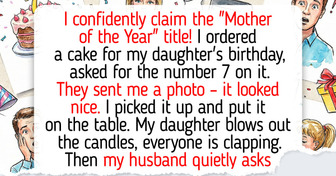
18 Stories About Exes Who Proved Harder to Forget Than to Leave
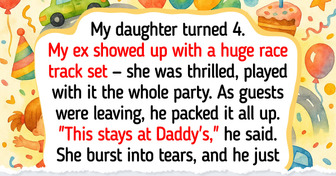
20+ Stories That Prove Having a Supportive Family Is the Best Safety Net in the World
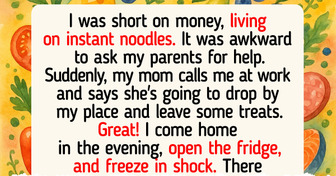
I Refused Extra Work, and Now HR Is Cutting My Salary
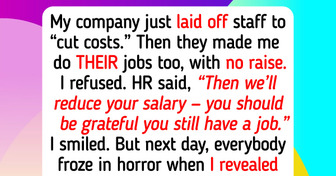
10 Stepchildren Who Opened Their Hearts to Love Again
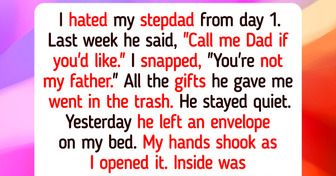
I Got Fired for Refusing to Let My Boss Humiliate Me in Front of Everyone
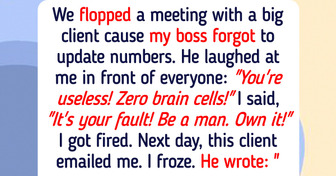
I Refuse to Care for My Daughter’s Baby, I’m Not a Free Childcare Center
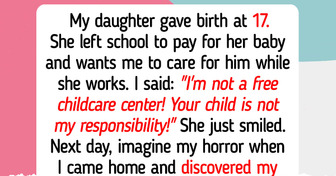
13 Teachers Who Didn’t Just Teach a Subject, They Rescued a Soul
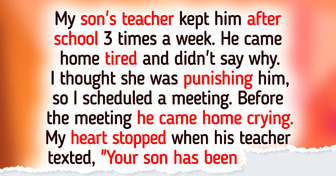
15 Times Someone Showed Kindness Without Saying Anything
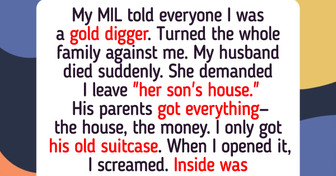
I Refused to Put My Health at Risk Because of My Job, Now HR Got Involved
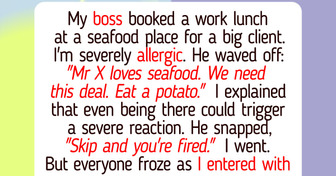
I Kicked Out My Sister and Her Son After His Behavior Crossed a Line
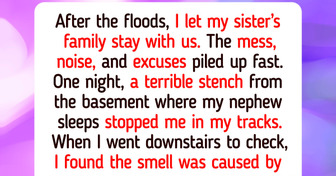
14 People Who Just Went With the Flow and Ended Up With a Story Worth Telling
